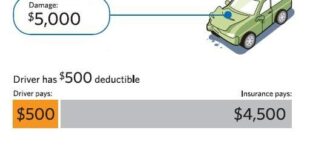Car Insurance Multi-Car: Guide to Coverage and Savings. Car insurance can be a complex topic, especially when managing multiple vehicles. Understanding how multi-car insurance policies work can help you save money and streamline your coverage. This guide will provide a comprehensive overview of multi-car insurance, its benefits, how to find the best policy, and answer common questions.
Understanding Multi-Car Insurance
What is Multi-Car Insurance? Multi-car insurance is a policy that covers multiple vehicles under a single insurance plan. It offers the convenience of managing all your cars under one policy, often resulting in significant savings compared to individual policies for each vehicle.
How Does Multi-Car Insurance Work? Typically, all vehicles listed on a multi-car policy are covered under a single premium. Each vehicle will have its own coverage limits, but the policyholder benefits from a unified plan and often lower rates.
Benefits of Multi-Car Insurance
- Cost Savings: Multi-car insurance usually comes with discounts compared to purchasing separate policies.
- Simplified Management: Managing a single policy for multiple vehicles reduces paperwork and administrative hassle.
- Consistent Coverage: Ensures that all vehicles have uniform coverage levels.
- Convenience: Easy renewal process and a single point of contact for claims and policy updates.
- Increased Coverage Options: Some insurers offer better coverage options or additional benefits for multi-car policies.
Finding the Best Multi-Car Insurance Policy
1. Compare Quotes Use online comparison tools to get quotes from different insurers. Ensure the comparison includes the same coverage levels for each policy to get an accurate comparison.
2. Check for Discounts Many insurance companies offer discounts for multi-car policies. Check what discounts are available and how they apply to your situation.
3. Evaluate Coverage Options Ensure that the policy offers the coverage you need for each vehicle. This includes liability, collision, comprehensive, and any additional coverage options you may require.
4. Consider Customer Service Look for insurers with a good reputation for customer service. Read reviews and consider recommendations from friends or family.
5. Review Policy Terms Carefully read the terms and conditions of the policy. Pay attention to exclusions and limitations that might affect your coverage.
6. Assess Deductibles Compare the deductibles across different policies. A lower deductible can be beneficial in case of claims, but it might increase your premium.
7. Check for Bundle Opportunities Some insurers offer additional savings if you bundle car insurance with other types of insurance, such as home or life insurance.
8. Evaluate Claims Process Understand the claims process of each insurer. A straightforward and efficient claims process can save you time and stress.
9. Look for Flexible Payment Options Check if the insurer offers flexible payment plans, such as monthly or annual payments, that fit your budget.
10. Review Renewal Policies Understand how the renewal process works. Some insurers offer automatic renewals, while others require you to renew manually.
Common Questions About Multi-Car Insurance
1. What vehicles can be included in a multi-car policy? Most types of vehicles, including cars, trucks, and SUVs, can be included in a multi-car policy. However, some insurers may have restrictions on the types of vehicles covered.
2. Can I add or remove vehicles from a multi-car policy? Yes, you can add or remove vehicles from a multi-car policy. Contact your insurer to update your policy as needed.
3. Will my multi-car policy cover drivers other than me? Yes, multi-car insurance policies typically cover other drivers who have permission to drive your vehicles. Check the specifics of your policy for details.
4. How much can I save with a multi-car insurance policy? Savings vary by insurer, but many offer discounts ranging from 10% to 25% compared to individual policies.
5. Can I get a multi-car policy if my vehicles are not parked in the same location? Yes, you can usually get a multi-car policy even if your vehicles are not parked in the same location. However, check with your insurer for any specific requirements.
6. Does multi-car insurance cover rental cars? Coverage for rental cars depends on the policy. Some multi-car insurance policies include rental car coverage, while others may not. Verify with your insurer.
7. How does a multi-car policy affect my insurance premiums? A multi-car policy often reduces premiums compared to separate policies, but your premium will depend on factors like the type of vehicles, coverage levels, and driving history.
8. Can I choose different coverage levels for each vehicle? Yes, you can often choose different coverage levels for each vehicle on a multi-car policy, allowing you to tailor coverage to each vehicle’s needs.
9. What happens if I switch insurers with a multi-car policy? If you switch insurers, your new insurer will typically handle the transition. Ensure there is no gap in coverage during the switch.
10. Are there any restrictions on the number of vehicles I can insure? Most insurers have a limit on the number of vehicles that can be included in a multi-car policy. Check with your insurer for their specific limits.
Conclusion
In conclusion, this car insurance provides a convenient and cost-effective way to manage coverage for multiple vehicles. By consolidating your insurance into a single policy, you can benefit from savings, simplified management, and consistent coverage. However, it’s essential to compare quotes, review policy details, and consider factors such as coverage options and customer service to find the best policy for your needs.
Choosing the right this car insurance policy can lead to substantial savings and a smoother insurance experience. By carefully evaluating your options and understanding your coverage needs, you can make an informed decision and enjoy the benefits of a comprehensive multi-car policy.
 oto car insurance used car repair
oto car insurance used car repair
